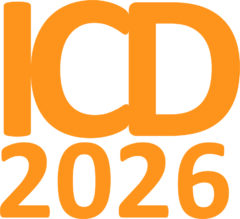Atomic Force Microscopy for Characterization of Dielectrics at Nanoscale
Program: June 30, 2024
2.00pm – Introduction (15min) Presentation of the IEEE DEIS TC Nanodielectrics and IEEE NTC activities
2.15pm – Presentations (1h30) 3 Invited speakers on different aspects of AFM study of nanodielectrics
- Nanomechanical properties – Dr. N Lahoud-Dignat (University of Toulouse, France)
- Electrical probing at nanoscale – Dr. C. Villeneuve-Faure (University of Toulouse, France)
- AFM/IR coupling (tentative title TBC) – M. Emmanuel Paris (Bruker, France)
3.45pm – Coffee break (15min)
4.00pm – Discussion (1h30min) moderated by Drs. K. Makasheva and Dr. S. Diaham
5.30pm – Closing remarks
Message to the attendees, please send in advance (1 month before) a short presentation (3 slides max.) containing different questions to be discussed in the debate part of the workshop.
Maximum attendance: 50 persons (on first come first served principle)
Registration fees: 80€
Eco-friendly materials in electrical insulation.
The workshop is held on Sunday 30th June, 02:00pm-05:00pm, at IMT Amphitheater Schwartz, Building 1R3, UPS Toulouse.
Program of the Workshop:
| 02:00pm (5 min) | Short introduction of the Workshop |
| 02:05pm (40 min) | ‘Industrial needs for greener materials for insulation in electronic domain’ by Dr Baptiste Arati, from IRT St Exupery Toulouse. |
| 02:45pm (40 min) | ‘Sustainable Insulation Materials for Power Cables’ by Detlef Wald from Eifelkabel Company. |
| 03:25pm (15 min) | Break |
| 03:40pm (40 min) | ‘Development of biobased epoxy resins for use in the electrical industry’ by Pr Jean-Pierre Habas, from the University of Montpellier. |
| 04:20pm (40 min) | Open discussion / exchanges with participants |
| 05:00pm | End of the Workshop |
The topics of ‘Green Materials’ or ‘Eco-friendly materials’ is very broad and is currently the subject of full conferences. For this edition of ICD we propose a Workshop willing to address different aspects of dielectric materials in electrical engineering regarding their ecological impact. The questions can be from bio-sourced materials, to recyclability aspects of materials in applications ranging from cables to power modules, to life-cycle assessment. The following presenters will initiate the discussion:
‘Industrial needs for greener materials for insulation in electronic domain’ by Dr Baptiste Arati, from IRT St Exupery Toulouse. The presentation will be based on current needs view from the industry standpoint, with notably expectancies for making electronic modules more recyclable. The attached criteria will be developed, based not only on next materials but also on the possibility of dismantling the objects. Solutions for overcoming these challenges will be discussed.
‘Sustainable Insulation Materials for Power Cables’, by Detlef Wald from Eifelkabel Company. The presentation will review the different kinds of insulating polymers currently used from low voltage to high voltage cables. Detlef will address the criteria to be considered to evaluate the ecological fingerprint associated with cables production. Finally, challenges and opportunities towards greener materials for these applications, ranging from the production stage to the recycling and after cable life fate of materials, will be discussed.
‘Development of biobased epoxy resins for use in the electrical industry’, by Prof. Jean-Pierre Habas, from the University of Montpellier. His presentation will be on the development of a large generation of bio-based epoxy resins from lipid- and sugar-chemistry. These resins present tunable properties that depend on the chemical nature of the components, their relative proportions in the reactive mixture but also their curing conditions. The application to electrical insulation will be addressed up to the industrial qualification.
Once these presentations will be completed, the floor will be given to the audience for exchanges. Topics of interest to attendees will be discussed. We are happy to feed the discussions between participants with short presentations or questions that the participants may have prepared in advance.
Contact : [email protected]; [email protected]
Tutorial “Assembly of space charge equipment for cables”
This tutorial, proposed by Pr. Hozumi and Pr. Morshuis, is held after the last day of the conference as a side event to ICD. The participants will experience the fabrication of a PEA measurement cell dedicated to cables. Participants will take home their own measurement cell. Space charge measurements of full-scale HVDC insulated cables systems have reached a level where they can be used in practical tests. However, the measurement of actual insulating systems involves unique problems such as voltage application methods and acoustic propagation characteristics. It remains difficult to systematize the know-how for solving these problems, and it is also difficult to let the readers understand their importance when they are described in a paper. In this short training, the participants will experience the know-how of space charge measurement by practically fabricating a measurement cell, and calibrate the charge intensity induced on the electrodes of a polymer insulator of 10 to 20 mm in thickness, with a bias voltage of about 10 kV. Participants will take home their own measurement cell.
An extra-charge would be called. See similar event at CMD 2022:
http://www2.iee.or.jp/~cmd2022/PDF/Program.pdf

